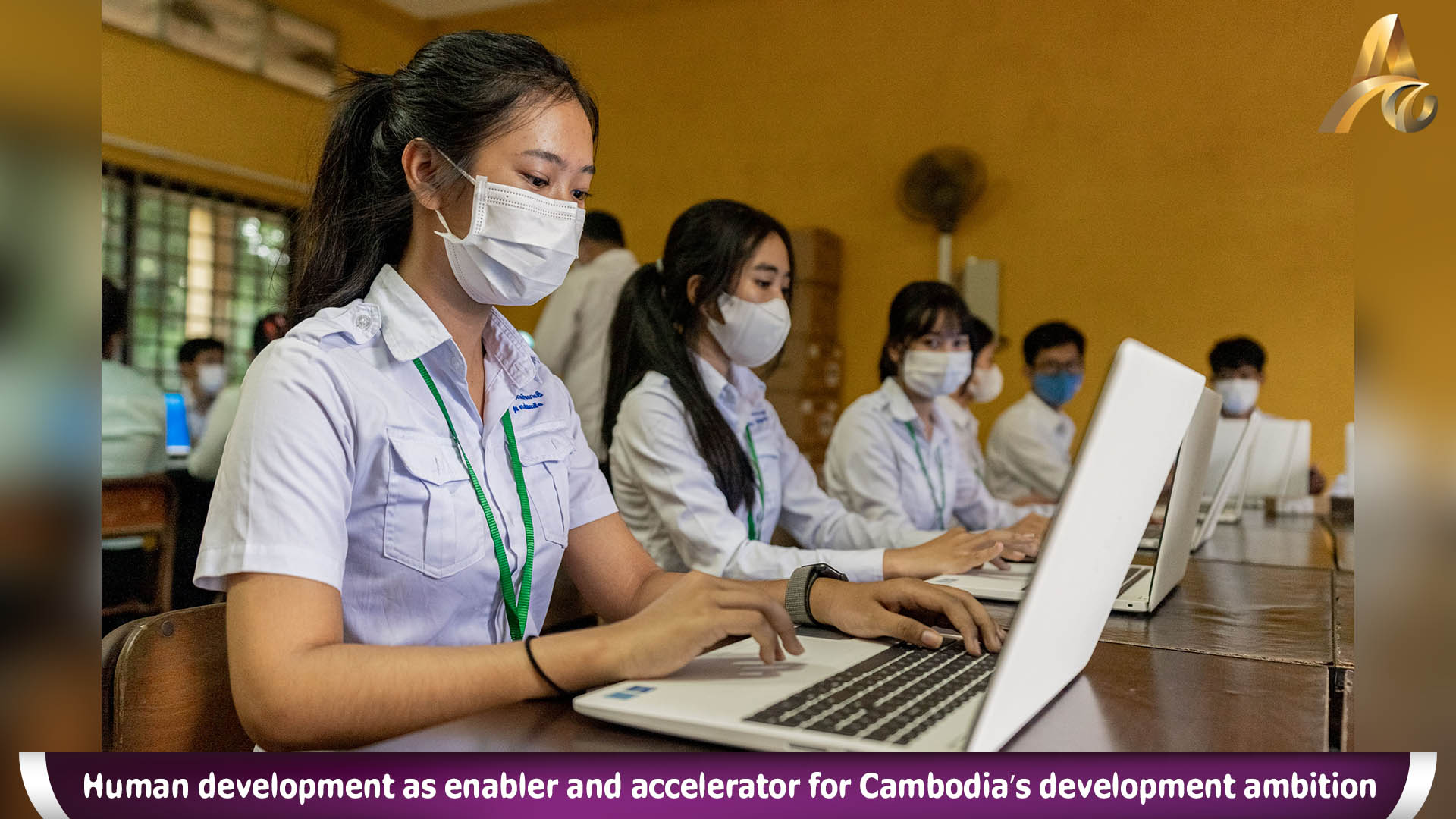The Asia and Pacific Region remains one of the fastest growing and most dynamic regions in the world despite growth slowdown due to the COVID-19 pandemic, climate extremes, geopolitical disruptions, and the ensuing cost of living crisis. Cambodia is no exception. The country maintained an average growth of 7% during the last two decades and recovered rather rapidly after the pandemic with growth reaching 5.3% in 2023. It is now gearing itself for graduation as Least Developed Country (LDC) and is actively pursuing new milestones to become upper middle-income country by 2030 and high-income by 2050.
Human development is essential for socioeconomic development as evidenced by the progress trajectory of developed countries; it was also prioritized in the new Pentagonal Strategy. Human development is about people, expanding their opportunities and choices, and improving their well-being. It is about developing their agency for transformation and progress.
The 2024 UNDP Asia-Pacific Human Development Report titled ‘Making Our Future: New Directions for Human Development in Asia and the Pacific’ presents a comprehensive yet nuanced assessment of past and future development paths in the region and offers useful insights for Cambodia as it ponders on its future pathway for development and how it can achieve the ambition of the Pentagonal Strategy.
A Tale of Progress, Disparity, and Disruption
The Human Development Index (HDI) in the Asia-Pacific region surged by 19 percentage points – the greatest leap in the world. Nonetheless, the human development journey has been a story of progress, disparity, and disruption. The region has pioneered new approaches to human development and made considerable long-term progress. But the benefits have not been equally shared. There are still widespread disparities among subregions, and across and within countries, with persistent structural exclusion. Millions of people in the region live precariously exposed to multiple threats impacting their social, political, and environmental security.
Cambodia has been one of the best performers in the region as evidenced by the increase in its HDI by 56.9 percent since 1990. With sustained high growth, Cambodia succeeded in lifting millions out of poverty. It reduced its multidimensional poverty, a measure of human wellbeing that goes beyond income, from 36.7 percent in 2014 to 16.6 percent in 2022, halving as such its multidimensional poverty in 7.5 yrs.
However, we cannot take the ongoing progress in human development for granted. When disaggregating these figures, we get a more nuanced reality. For example, while significant human development progress was made in Cambodia, the distribution of these benefits has not been equitable. Take for example the prevalence of informality in the labor force. Cambodia ranks top third in the Asia-Pacific region with an informality rate of 88 percent. Informality increases the precariousness and vulnerability of a large section of the population. Besides, while significant progress has been made to promote gender equality, Cambodian women continue to face gender disparities and structural obstacles that hinder their progress. On average, women receive 1.5 years less of schooling and have 35.8% lower Gross National Income (GNI) per capita than men. Persisting disparities signify untapped growth potential not only for the marginalized but also for the Cambodian economy and society at large.
New Paths for Human Development
Unmet aspirations, heightened human insecurity, and a potentially more turbulent future call for urgent change. The report offers insights, which resonate well with Cambodia in the context of LDC graduation.
First mainstreaming human development to broaden people’s choices and capabilities through improved health and education. This includes addressing structural exclusion by closing the gender gap and improving and expanding the care economy, reducing inequality, vulnerability and human insecurity through creating decent jobs and strengthening social protection and health systems, and safeguarding the needs and well-being of current and future generations by accelerating just energy transition, accelerating climate change adaptation, managing public finance to avoid stifling debt, abolishing subsidies that harm the environment, and embracing green and circular economy.
Second, rethinking economic growth through diversifying the economy for a calibrated export-led growth that generates and supports entrepreneurship and decent jobs. This shift can be accelerated by embracing digital transformation, fostering innovation, harnessing public-private partnerships and aligning private investment to the SDGs for closing the financing gap needed to implement the Pentagonal Strategy and achieve the 2030 Agenda.
Third, making change happen. The report advocates for future-fit governance systems that are anticipatory, adaptive, and agile to respond to people’s needs, and manage future uncertainties and complexities. The leap from strategy to action will require a shift in mindset among leaders and communities, and strong institutions for implementation through nurturing political will, collaborative leadership, and civic engagement.
While the insights can be tailored to national and local circumstances, Cambodia stands to gain from a more integrated development approach that puts people first, delivers smart, inclusive and sustainable growth.
Op-Ed is written by Alissar Chaker, Resident Representative of UNDP Cambodia


Manuth Buth/UNDP Cambodia






















